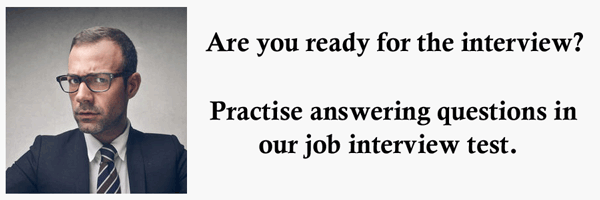Interviewer:'Imagine that you had a problem with a member of your team. A customer has accused the person of insulting them. What would you do to resolve the problem?'
Candidate:'That's a very interesting situation. Unfortunately, it happens all too often in customer facing roles. In fact, I faced a similar situation at where I'm currently working about 3 months ago. A member of my team wrote something in an email to a client, which the client took offense to.
When dealing with any situation of unprofessional or inappropriate behaviour, you should already have processes and procedures in place. It not only ensures that you can quickly resolve the issue, but it also minimizes the impact on the business.
As I just mentioned, you need to ensure that the issue is dealt with promptly. This is not only for the reputation of the company, but for the morale of the staff member involved.
In a situation where a customer had accused a member of my team of insulting them, first of all I would speak to the two parties involved to fully understand what happened. I personally would first speak with the customer and after that with the member of staff. It's very important to make sure that you don't jump to any conclusions before you do any of this. If you do, it will make you less objective. And this is what you need to be in resolving these situations.
Although it is important to find out what was actually said in the conversation, you must take into consideration the context in which it was said. Was something meant as a joke which the other person didn't understand for example.
After I have done that, I would document what each party has said in a report and consider the evidence. I always find it useful before I reach a conclusion about how I should proceed to go through what I've got with either my manager or one of the other managers. In serious cases like these, I always find that the opinions and input of others is invaluable to making the right decision.
If I found that the customer's accusation was valid, I would escalate it to the manager of human resources and let her deal with it from there. Of course, I would inform my staff member of the situation before I did so and contact the customer to apologise and to offer them some form of compensation.
If I found the customer's accusation was not valid; after informing the member of my team, I would contact the customer and delicately explain that there was a misunderstanding. But at no point would I accept that we were at fault. Because by doing so, you run the risk of not only damaging the relationship you have with the member of your team who was accused, but with that of your whole team.
Being a manager is not only about giving orders and controlling your staff, but also on them knowing they can trust and depend on you.'


 ". Click on this for extra information on the word/phrase. The second is a Pronunciation Icon "
". Click on this for extra information on the word/phrase. The second is a Pronunciation Icon " ". Click on this to listen to the pronunciation of the word/phrase.
". Click on this to listen to the pronunciation of the word/phrase.
